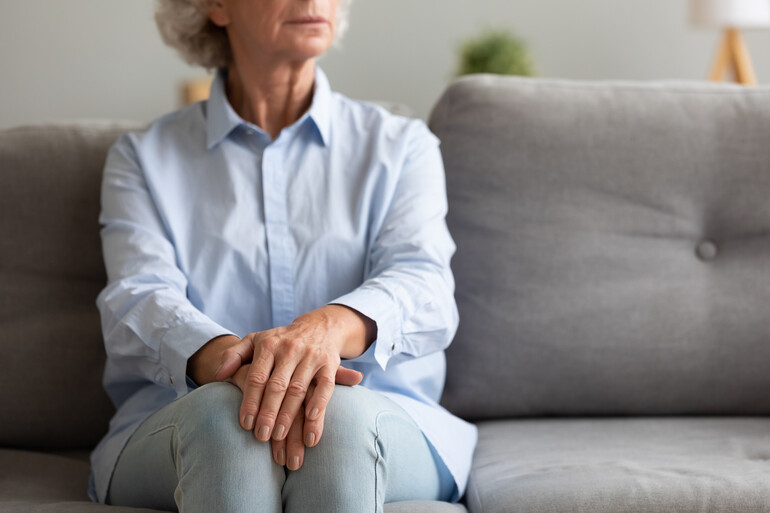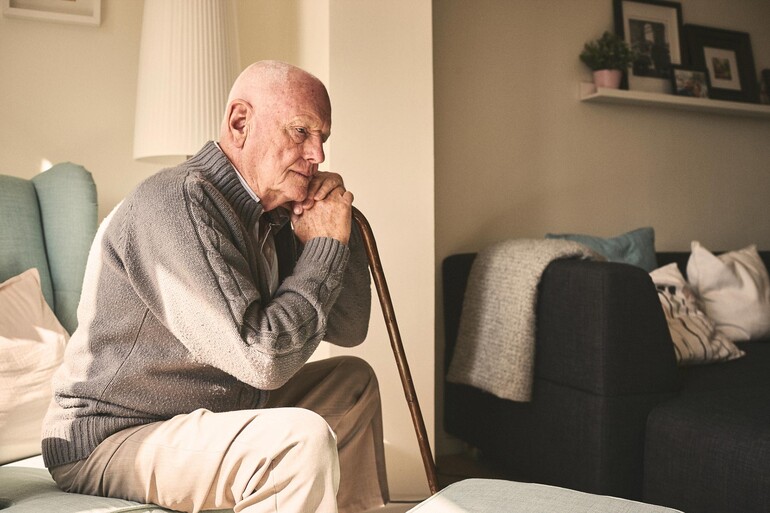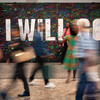The novel coronavirus continues to sweep across the globe.
Here in the Northwest several states have mandated extensive shutdowns, excepting grocery stores, pharmacies and take-out restaurants. Everywhere you turn, people are observing social distancing — staying home and avoiding crowds.
While it’s crucial to slow the spread of COVID-19, practicing social distancing can make us sick too. Social distancing results in fewer face-to-face interactions, increasing loneliness and isolation.
This past December a story went viral about an elderly woman in Tulsa, Oklahoma who posted a plea on Craigslist.
“Anybody need a grandma for Christmas?” she wrote. “I’ll even bring food and gifts for the kids! I have nobody and it really hurts.”

Older people who feel lonely have a 45% increased mortality rate.
This heart-rending story spotlights a deep social epidemic not many are talking about. Sixty-one percent of working Americans report feeling lonely. Loneliness and isolation are especially problematic among older people. Twenty-seven percent of older Americans live alone. According to the Health Resources and Services Administration (HRSA), among older people who report feeling lonely, there is a 45% increased chance of mortality.
According to the HRSA, loneliness can be as damaging to our health as smoking 15 cigarettes a day. When we feel isolated and lonely, our risk of depression, high blood pressure and death from heart disease increases. This can also impact the immune system’s ability to fight infection — a fact that’s especially relevant during a pandemic. Studies have shown that loneliness can activate our fight-or-flight function, causing chronic inflammation and reducing the body’s ability to defend itself from viruses.

Social distancing is especially difficult for older Americans, many of whom live alone.
As we're facing the coronavirus pandemic, we have an opportunity to make a real difference. Here are seven ways you can fight back against loneliness and isolation.
- Make it a priority to get connected with those you know are isolated, especially the elderly. Check in daily and look for ways to spend time together, either through a FaceTime or WhatsApp call or just by using the phone.
- Think about how you can interact with others without putting your health (or theirs) at risk. Can you speak to your neighbors from over a fence or across balconies? There are some great examples of this from Italy on YouTube.
- Check in with your friends, family and neighbors regularly. Wherever you can, assist people in your life who may be more vulnerable (for example, those with no access to the internet or who cannot easily use the internet to shop online).
- Spend the time connecting with the people you are living with. If you are in a lockdown situation, use this time to improve your existing relationships.
- Manage your stress levels. Exercise, pray and keep to a daily routine as much as possible.
- Find creative ways to build community. If you’re musically inclined, stream a concert for your friends and family. How about starting an exercise group and stream it via Facebook, Instagram or YouTube? Organize a virtual Bible study. Take turns reading verses, then discuss what God is speaking to your heart through His Word.
- Get outside whenever possible. The fresh air and exercise of a simple walk can be beneficial to boost your spirits and give you needed energy to find ways to reach out to those around you.
Think of more ways to make a difference? Send us note at talk@gleanernow.com. We'd love to hear what you're doing to build community in these challenging times.









